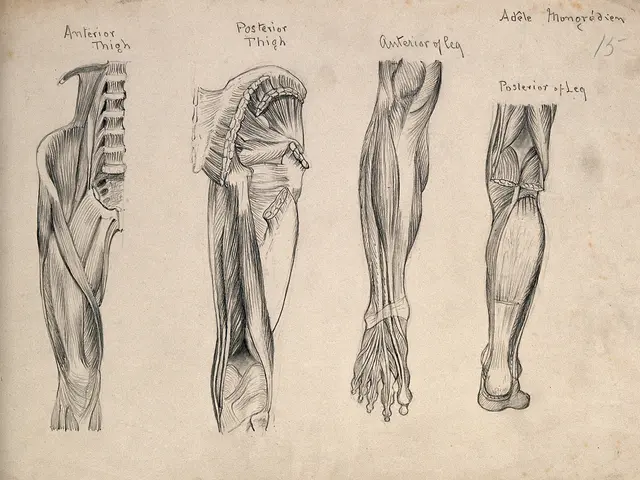Enhancing Gut Health Through Unconventional Methods: A Look Beyond Dietary Choices
A healthy gut is not just about what you eat; it's also about how you live. Two often overlooked factors that can significantly impact gut health are sleep and physical movement.
Sleep plays a crucial role in maintaining gut health. The gut microbiome, the community of microorganisms living in our digestive tract, has its own circadian rhythm. Poor or insufficient sleep can disrupt the composition and diversity of these microbes, leading to digestive issues and inflammation. High cortisol levels caused by poor sleep can also harm gut health and promote inflammation. On the other hand, healthy gut bacteria produce serotonin, which supports melatonin production and a healthy sleep cycle. Ideally, aim for 7 to 9 hours of quality sleep each night to maintain gut health [1].
Reducing screen time before bed and creating a calming nighttime routine can help achieve optimal sleep. Short-term sleep deprivation can alter the composition and diversity of the gut microbiome, leading to long-term health issues like inflammation and chronic conditions.
Physical movement is another essential factor for a healthy gut. Movement stimulates the muscles in the digestive tract, helping foods pass more efficiently and reducing bloating and constipation. Exercise is also a powerful stress buster, which can lead to a calmer, happier gut. At least 30 minutes of moderate activity most days, including walking, swimming, or yoga, is advised for supporting gut health beyond caloric burn [1].
Registered dietitian Zoe Griffiths, VP of behavioral medicine at Numan, emphasises the importance of a healthy gut. She states that a healthy gut helps break down food, absorb nutrients, and regulate the immune system. Improvements in gut health require perseverance, and adopting simple lifestyle changes can make a difference in improving gut health, but one-time changes aren't effective. You should start seeing changes in gut health relatively quickly, potentially within a few weeks, but longer-lasting changes are necessary to see results in the gut microbiome.
In summary, consistent quality sleep and regular physical activity are two key non-dietary factors that significantly influence gut health by regulating microbial diversity, reducing inflammation, enhancing digestion, and modulating stress levels [1]. For more substantial and sustained improvements in gut health, it may take several months of consistent effort.
[1] Griffiths, Z. (2021). The gut-brain axis: Stress, sleep, and the microbiome. Numan. Retrieved from https://numan.com/blog/the-gut-brain-axis-stress-sleep-and-the-microbiome
- Yoga, being a form of physical movement, stimulates the muscles in the digestive tract, helping foods pass more efficiently and reducing bloating and constipation, thus supporting gut health.
- Good sleep hygiene, including reducing screen time before bed and creating a calming nighttime routine, promotes healthy gut bacteria, which in turn support melatonin production and a healthy sleep cycle.
- NUTRITION, in addition to what we eat, plays a role in mental health, as healthy gut bacteria produce serotonin, a neurotransmitter associated with wellness and happiness.
- Adopting simple lifestyle changes, such as prioritizing sleep, engaging in regular physical activity, and possibly incorporating yoga into fitness-and-exercise routines, can contribute to long-term improvements in gut health and overall health-and-wellness.






